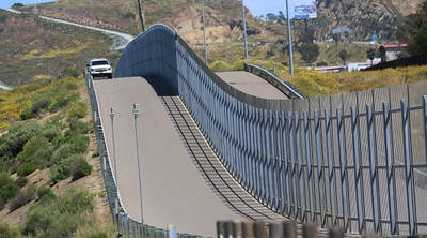
HOUSTON, Sept. 6 (Xinhua) -- A U.S. federal judge on Wednesday ruled that Republican-led Texas must remove floating barriers it set up to deter migrants from crossing the U.S.-Mexico border in heavily trafficked areas of the Rio Grande.
"Unfortunately for Texas, permission is exactly what federal law requires before installing obstructions in the nation's navigable waters," Federal District Judge David A. Ezra wrote in his order, issuing a preliminary injunction to remove these barriers and stop building further obstructions in the river.
Texas Governor Greg Abbott's office immediately appealed Ezra's ruling to the U.S. Court of Appeals for the Fifth Circuit, claiming that the state "is prepared to take this fight all the way to the U.S. Supreme Court."
"Today's court decision merely prolongs President Biden's willful refusal to acknowledge that Texas is rightfully stepping up to do the job that he should have been doing all along," the governor's office said in a statement.
In the wake of the end of Title 42 in May, Abbott ordered the deployment of the 1,000-foot string of buoys in the middle of the border river next to Eagle Pass, western Texas, which shares the border with the Mexican city of Piedras Negras.
The Biden administration filed a lawsuit against Texas in late July, alleging that Texas and its governor violated the Rivers and Harbors Appropriation Act by building a structure in U.S. water without permission from the U.S. Army Corps of Engineers.
The state argued that the barrier isn't a structure that requires authorization, and that it notified the International Boundary Water Commission, the binational body that regulates the Rio Grande, before the installlation.
The Mexican government has repreatedly condemned the establishment of water barriers in the Rio Grande, calling the Texas move a "violation of our sovereignty."
"We express our concern about the impact on the human rights and personal safety of migrants that these state policies will have, which go in the opposite direction to the close collaboration between our country and the federal government of the United States," the Mexican Ministry of Foreign Affairs reportedly said in the statement last month.




